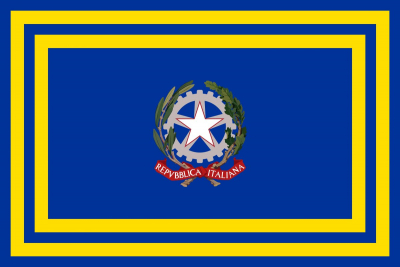Benedetto "Bettino" Craxi (UK: KRAK-see, Italian: [bettino kraksi], Sicilian: [ka]; 24 February 1934 19 January 2000) was an Italian politician, leader of the Italian Socialist Party (PSI) from 1976 to 1993, and the 45th prime minister of Italy from 1983 to 1987. He was the first PSI member to become prime minister and the third from a socialist party to hold the office. He led the third-longest government in the Italian Republic and he is considered one of the most powerful and prominent politicians of the First Italian Republic.Craxi was involved in investigations conducted by Mani Pulite judges in Milan, eventually being convicted for political corruption and illicit financing of the PSI. He always rejected the charges of corruption while admitting to the illegal funding that permitted costly political activity, the PSI being less financially powerful than the two larger parties, Christian Democracy (DC) and the Italian Communist Party (PCI). Craxi's government and party were also supported by future Prime Minister Silvio Berlusconi, a media magnate and personal friend of Craxi.Craxi maintained strong links with many leaders of the European left, including Franois Mitterrand, Felipe Gonzlez, Andreas Papandreou, and Mrio Soares, and was one of the main representatives of Mediterranean or South European socialism. Craxi's supporters especially praised his foreign policy, which was assertive and often led to confrontations with the United States, on issues such as Palestinian territories, terrorism, and Craxi's close relations with Arab socialist governments.Craxi was often nicknamed by his detractors il Cinghialone ("The Big Boar") due to his physical size. This name was given him by his long-time ally and rival at the same time, DC leader Giulio Andreotti.
The prime minister of Italy, officially the president of the Council of Ministers of the Italian Republic (Italian: Presidente del Consiglio dei ministri della Repubblica Italiana), commonly referred to in Italy as Presidente del Consiglio or informally as Premier, is the head of government of the Italian Republic. The office of prime minister is established by Articles 92 through 96 of the Constitution of Italy. The prime minister is appointed by the president of the Republic and must have the confidence of the Italian Parliament to stay in office.
Prior to the establishment of the Italian Republic, the position was called President of the Council of Ministers of the Kingdom of Italy (Presidente del Consiglio dei ministri del Regno d'Italia). From 1925 to 1943 during the Fascist regime, the position was transformed into the dictatorial position of Head of the Government, Prime Minister Secretary of State (Capo del Governo, Primo Ministro Segretario di Stato) held by Benito Mussolini, Duce of Fascism, who officially governed on the behalf of the King of Italy. King Victor Emmanuel III removed Mussolini from office in 1943 and the position was restored with Marshal Pietro Badoglio becoming Prime Minister in 1943. Alcide De Gasperi became the first prime minister of the Italian Republic in 1946.
The prime minister is the president of the Council of Ministers which holds executive power and the position is similar to those in most other parliamentary systems. The formal Italian order of precedence lists the office as being, ceremonially, the fourth-highest Italian state office.
Mario Draghi, former President of the European Central Bank, was appointed Prime Minister by President Sergio Mattarella on 13 February 2021 following the resignation of Giuseppe Conte.

1995Oct, 27
Former Prime Minister of Italy Bettino Craxi is convicted in absentia of corruption.
Choose Another Date
Events on 1995
- 16Mar
Thirteenth Amendment to the United States Constitution
Mississippi formally ratifies the Thirteenth Amendment, becoming the last state to approve the abolition of slavery. The Thirteenth Amendment was officially ratified in 1865. - 20Mar
Sarin gas attack on the Tokyo subway
The Japanese cult Aum Shinrikyo carries out a sarin gas attack on the Tokyo subway, killing 12 and wounding over 1,300 people. - 5Aug
Operation Storm
Yugoslav Wars: The city of Knin, Croatia, a significant Serb stronghold, is captured by Croatian forces during Operation Storm. The date is celebrated in Croatia as Victory Day. - 19Sep
Unabomber
The Washington Post and The New York Times publish the Unabomber's manifesto. - 30Oct
Quebec referendum, 1995
Quebec citizens narrowly vote (50.58% to 49.42%) in favour of remaining a province of Canada in their second referendum on national sovereignty.

 English
English  español
español  français
français  português
português  русский
русский  العربية
العربية  简体中文
简体中文 